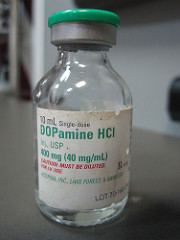Recently, scientists at UC Berkeley and UC San Francisco have discovered a new effect of dopamine on human behavior: increased egalitarian behavior. Dopamine is a neurotransmitter naturally manufactured by our brains that affects the reward and pleasure centers of the brain, or the prefrontal cortex. Thus, when flooded with dopamine, the brain experiences feelings of euphoria. Dopamine also affects movement and promotes prosocial behavior. Damage to neurons in the prefrontal cortex can lead to a disruption of normal dopamine pathways, ultimately leading to changes in behavior and movement. For example, individuals with Parkinson’s Disease experience impaired movement, often accompanied with psychiatric illnesses such as depression, anxiety, and psychosis. This stems from an inability to manufacture dopamine due to neuron death.
Image Source: Fernando Da Cunha
In an attempt to better understand the effect of dopamine on human behavior, researchers conducted a study using an FDA-approved drug called tolcapone that would prolong the effects of dopamine in the body. On two occasions, 35 study participants were invited into the lab and either took a placebo pill or the tolcapone pill. It was a double-blind experiment: neither the researchers nor the study participants were aware of which pill they took. The participants subsequently played a game that involved dividing money between themselves and an anonymous recipient. Results indicated that those that took the tolcapone pill were more likely to split the money in a fairer and more equal way than those who took the placebo pill. Furthermore, computational modeling suggested that participants who took the tolcapone pill had a greater awareness and lower tolerance of inequity.
This increase in egalitarian behavior as a result of chemical balances in the brain is a promising step towards a better understanding of the effects of chemical imbalances and their role in mental illnesses. In the future, perhaps this insight could lead to therapies or cures for devastating mental illnesses.
Feature Image Source: Dopamine by M










